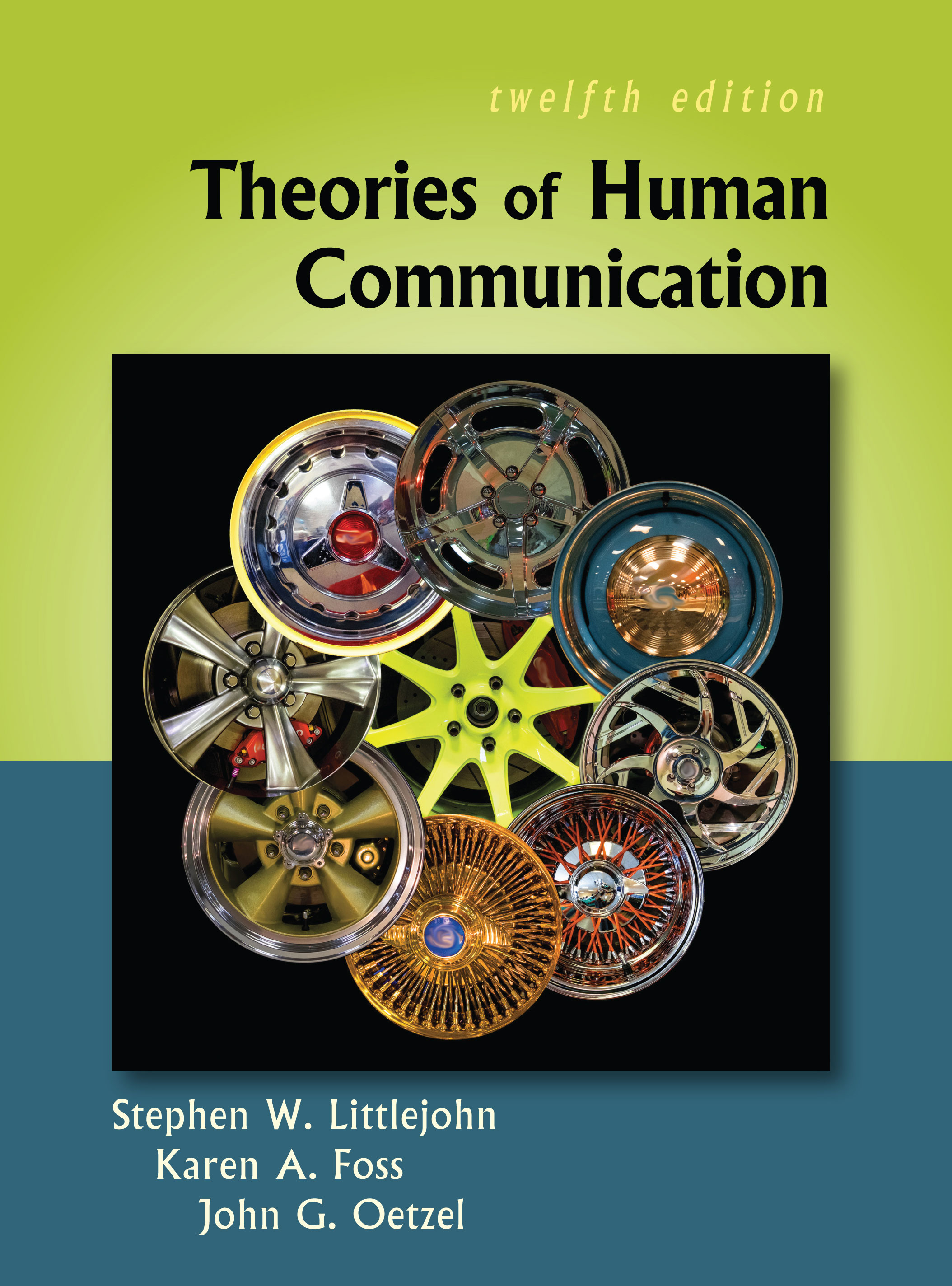“I have enjoyed using this text very much. The students sometimes find it very challenging and that is a good thing.” — Cam Brammer, Marshall University
“I cannot imagine using a different foundational text for comprehensive communication theory courses.” — Scott Hayes, Liberty University
“I love how the authors present the theories in groups instead of each having their own chapter. I also love how we can use the transactional model of communication to get students thinking about how the theories can be applied.” — Sarah LeBlanc, Purdue University, Fort Wayne

503 pages, $79.95 list
1-4786-4667-5
978-1-4786-4667-9
© 2021
paperback
Instructor's resource materials available here
To obtain a username and password to access these materials, contact comps@waveland.com.
To obtain a username and password to access these materials, contact comps@waveland.com.
eBook availability
Also by
Stephen W. Littlejohn
Stephen W. Littlejohn
Theories of Human Communication
Twelfth Edition
For over forty years, Theories of Human Communication has facilitated the understanding of the theories that define the discipline of communication. The authors present a comprehensive summary of major communication theories, current research, extensions, and applications in a thoughtfully organized and engaging style.
Part I of the extensively updated twelfth edition sets the stage for how to think about and study communication. The first chapter establishes the foundations of communication theory. The next chapter reviews four frameworks for organizing the theories and their contributions to the nature of inquiry. Part II covers theories centered around the communicator, message, medium, and communication with the nonhuman. Part III addresses theories related to communication contexts—relationship, group, organization, health, culture, and society. “From the Source” contributions from theorists provide insight into the inspirations, motivations, and goals behind the theories. Online instructor’s resource materials include sample syllabi, key terms, exam questions, and text graphics.
The theories include those important for their continuing influence in the field as well as emerging theories that encourage thinking about issues in new ways. For a reasonable price, readers are able to explore the patterns, trends, trajectories, and intricacies of the landscape of communication theory and will have an invaluable resource for future reference.
Part I of the extensively updated twelfth edition sets the stage for how to think about and study communication. The first chapter establishes the foundations of communication theory. The next chapter reviews four frameworks for organizing the theories and their contributions to the nature of inquiry. Part II covers theories centered around the communicator, message, medium, and communication with the nonhuman. Part III addresses theories related to communication contexts—relationship, group, organization, health, culture, and society. “From the Source” contributions from theorists provide insight into the inspirations, motivations, and goals behind the theories. Online instructor’s resource materials include sample syllabi, key terms, exam questions, and text graphics.
The theories include those important for their continuing influence in the field as well as emerging theories that encourage thinking about issues in new ways. For a reasonable price, readers are able to explore the patterns, trends, trajectories, and intricacies of the landscape of communication theory and will have an invaluable resource for future reference.
Reactions
Part I: Foundations
1. Foundations of Communication Theory
Defining Communication / The Idea of Theory / Dimensions of Theory / Evaluating Communication Theory / Looking Forward
2. Frameworks for Organizing Theories
Paradigms of Inquiry / Discourses of Communication / Communication Tiers / Traditions of Communication Theory
PART II: Elements of the Communication Model
3. The Communicator
Biophysiology / Cognitive Processing / Strategic Management / Self and Identity
4. The Message
Message Production / Message Management
5. The Medium
The Medium and Production / Content and Effects / Motivations, Uses, and Consumption
6. Beyond Human Communication
Communication between Humans and Nature / Communication between Humans and Objects / Communication between Humans and Machines / Communication between Humans and the Divine
Part III: Contexts of Communication
7. The Relationship
Boundaries and Connections / Relational Development and Maintenance / Tensions and Challenges
8. The Group
Group Context / Group Process and Effectiveness / Group Effectiveness
9. The Organization
Organizing and Structuring / Control and Resistance / External Stakeholder Communication
10. Health Contexts
Messages and Behavior Change / Relationships / Managing Information and Risk / Health Inequities
11. Culture
Communicating Culture / Intercultural Communication Competence / Cultural Adaptation / Negotiating Difference
12. Society
Social Foundations / Social Critique / Social Change
1. Foundations of Communication Theory
Defining Communication / The Idea of Theory / Dimensions of Theory / Evaluating Communication Theory / Looking Forward
2. Frameworks for Organizing Theories
Paradigms of Inquiry / Discourses of Communication / Communication Tiers / Traditions of Communication Theory
PART II: Elements of the Communication Model
3. The Communicator
Biophysiology / Cognitive Processing / Strategic Management / Self and Identity
4. The Message
Message Production / Message Management
5. The Medium
The Medium and Production / Content and Effects / Motivations, Uses, and Consumption
6. Beyond Human Communication
Communication between Humans and Nature / Communication between Humans and Objects / Communication between Humans and Machines / Communication between Humans and the Divine
Part III: Contexts of Communication
7. The Relationship
Boundaries and Connections / Relational Development and Maintenance / Tensions and Challenges
8. The Group
Group Context / Group Process and Effectiveness / Group Effectiveness
9. The Organization
Organizing and Structuring / Control and Resistance / External Stakeholder Communication
10. Health Contexts
Messages and Behavior Change / Relationships / Managing Information and Risk / Health Inequities
11. Culture
Communicating Culture / Intercultural Communication Competence / Cultural Adaptation / Negotiating Difference
12. Society
Social Foundations / Social Critique / Social Change